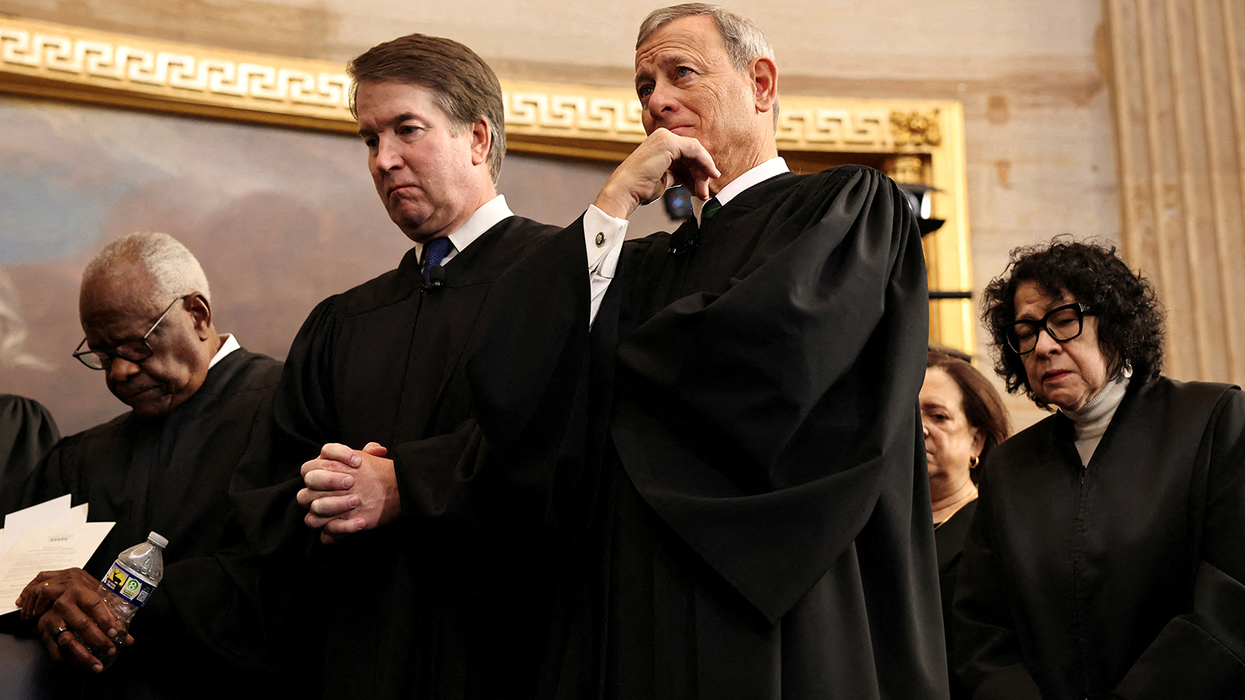President Donald Trump issued numerous executive orders after returning to the White House almost a month ago, and some of them are being temporarily blocked by federal judges.
Trump and his allies are claiming that those judges are exceeding their authority; Department of Government Ethics (DOGE) head Elon Musk is even calling for Congress to impeach them. But Trump's critics are responding that federal courts play a vital role in the United States' system of checks and balances — and that according to the U.S. Constitution, the federal government's executive branch isn't as powerful as the Trump Administration claims it is.
Some of these Trump-related cases may ultimately be evaluated by the U.S. Supreme Court — a possibility that legal expert Douglas Keith examines in an interview with Salon's Chauncey DeVega published in Q&A form on February 19. Keith is a senior attorney at the Brennan Center for Justice at the New York University Law School in Manhattan.
READ MORE: GOP lawmaker sounds the alarm on coming ‘clash’ between Republicans and Trump
Keith told DeVega, "The (Trump) Administration has already said they're appealing one district court decision to an appeals court, which is the next step before appealing to the U.S. Supreme Court — and that appeal could come pretty quickly. Some of the Trump Administration's current actions clearly appear to be unconstitutional or illegal under current law. But the Administration may be anticipating that the U.S. Supreme Court will read the law differently than it has in the past."
The Brennan Center attorney continued, "Recent decisions coming out of the Supreme Court have expanded the executive branch's power. That being said, I do not believe that there is any outcome in the Supreme Court that is inevitable when it comes to these cases. In the end, the public may be surprised to see some of the decisions coming out of the Supreme Court, even though the Court has been so significantly shaped by President Trump during his prior administration."
Brennan Center CEO Michael Walden, in an article published by Brennan's website on February 11, stressed that obeying federal court orders is mandatory — not optional — for the Trump Administration.
When DeVega asked Keith how much "power and legal authority" Trump's executive orders "really have in the American system of law and democracy," Keith responded, "It depends on the executive order."
READ MORE: Mike Johnson's big budget bill likely dead on arrival as 'key holdouts' threaten to sink it
Keith continued, "Some executive orders have real teeth and legal effect. The president is the head of the executive branch. As chief executive, the president has the authority to direct any number of agencies in their work and specifically to tell them how to do their work. There are limits to what executive orders can do. For example, executive orders cannot void acts of Congress. There are executive orders that are little more than glorified press releases. The power of a given executive order ultimately depends on what authority the order claims to rest on, with that authority still very much constrained by the Constitution."
READ MORE: How Ron DeSantis is gaslighting Black Floridians
Chauncy DeVega's interview with Douglas Keith is available at this link.


